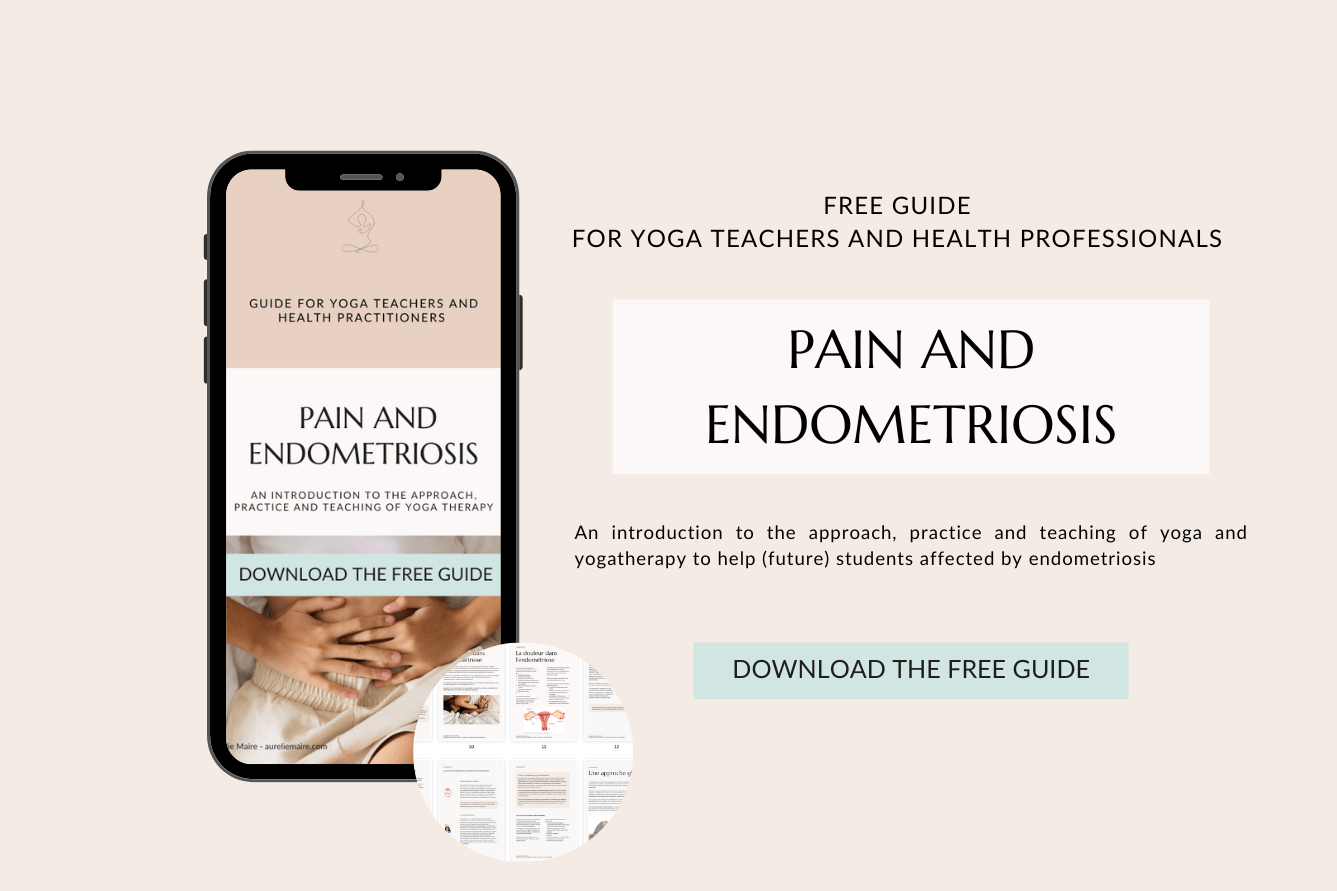If you’re living with endometriosis, it’s completely natural to have questions about the progression of your condition during perimenopause and menopause. You might be wondering how this transition will impact your symptoms and whether endometriosis will continue to influence your well-being. How do you navigate this delicate period when endometriosis is a factor? These are questions I’ve asked myself and continue to ponder as I am in my forties.
In this article, we address several common questions that women with endometriosis often ask, with the hope of witnessing their pain and symptoms diminish during menopause. We’ll explore how this transition period can bring about certain challenges and new concerns and how you can approach this phase with greater tranquility.
Understanding Endometriosis
Endometriosis is a complex condition where endometrial tissue grows outside the uterus. Approximately 10% of women worldwide are affected by this condition. Once considered uncommon, endometriosis is now acknowledged as a frequent cause of pain and infertility. Current treatments aim to manage symptoms.
Understanding Menopause
As per the World Health Organization (WHO), menopause is defined as the “permanent cessation of menstruation… characterized endocrinologically by decreased ovarian activity, biologically by decreased fertility, and clinically by altered menstrual cycle intervals and a variety of symptoms.”
Menopause occurs one year after the cessation of periods and marks the conclusion of the fertile phase. The average age of menopause is 51, but this process is not immediate.
Understanding Perimenopause
Perimenopause is the clinical term for the period during which your body is transitioning to menopause. In simpler terms, it’s the time leading up to menopause, during which your body undergoes a gradual hormonal shift. Perimenopause can last between two and ten years and can occur anytime between your thirties and fifties. Throughout this period, your ovaries release eggs less frequently, estrogen production decreases, and you might notice more irregular menstrual cycles.
This can lead to symptoms such as headaches, intensified premenstrual syndrome, mood changes, irregular periods, muscle soreness, cognitive disturbances (concentration and memory), vaginal dryness, and shifts in libido.
The Impact of Perimenopause and Menopause on Endometriosis
There is still much to uncover and comprehend. This is a period that can be particularly sensitive for women, especially when endometriosis is in the equation. It can bring forth challenges as well as new questions and concerns. The positive news is that Ayurveda and yoga therapy also offer solutions to better prepare for and navigate this period.
During perimenopause, hormonal fluctuations can periodically exacerbate endometriosis symptoms. As you advance toward menopause, estrogen levels stabilize, generally resulting in an improvement of endometriosis symptoms. However, for some women, endometriosis may persist after menopause.
We tackle some common questions here that women with endometriosis often ask, with the hope of witnessing their pain and symptoms decrease during menopause.
Is It Possible to Have Endometriosis During Perimenopause / Menopause?
According to experts, it’s possible. Symptoms of endometriosis and perimenopause can overlap, making diagnosis challenging.
Symptoms commonly associated with both perimenopause and endometriosis may include:
- Heavy and/or irregular periods
- Digestive issues (constipation, nausea…)
- Abdominal pain
- Pain during sexual intercourse
- Fatigue
- …
Therefore, consulting a healthcare professional is crucial for an accurate diagnosis based on your circumstances.
Can Endometriosis Be Linked to Early Menopause?
In a recent study, researchers concluded that endometriosis could potentially play a significant role in causing early natural menopause.
The study revealed that women diagnosed with endometriosis, particularly those who had never used oral contraceptives or had never given birth (nulliparous), could be susceptible to a reduced duration of their “reproductive capacity.”
Hormone replacement therapy (HRT) may be recommended by a gynecologist for those experiencing early menopause or to alleviate menopause symptoms and prevent potential health risks associated with hormone decline. However, the use of HRT in women with endometriosis requires discussion with a gynecologist or an endometriosis specialist.
Hormone Replacement Therapy (HRT) and Endometriosis
The goal of HRT is to alleviate menopause symptoms or decrease the risk of bone loss and heart disease.
However, it might not be the optimal treatment for all women during perimenopause and menopause. It can also “reactivate” endometriosis. Researchers have identified a potential link between HRT and a risk of post-menopausal endometriosis. Additional research is necessary to understand the risks and benefits for women with endometriosis.
Hence, discussing this with a healthcare professional is pivotal to consider your options.
Tips for Navigating Perimenopause and Menopause with Greater Serenity
Any changes in your body and mood can be discomforting and affect your well-being, especially if you’re uncertain about their causes. First and foremost, if you suspect you might be in the perimenopausal phase, it’s always best to seek medical advice. Talk to your gynecologist about any noticeable changes and discomforts you’re experiencing.
Simultaneously, you can support your well-being through natural solutions such as Ayurveda and yoga therapy. These approaches can help balance your body’s systems and navigate this period with more tranquility. A trained professional who understands the challenges at the intersection of endometriosis and menopause is recommended.
The Ayurvedic Perspective on Menopause and Endometriosis
According to Ayurveda, it’s not menopause itself that brings discomfort to women. It’s underlying imbalances that have accumulated and were not addressed earlier in life.
Ayurveda provides a positive perspective on menopause and encourages positive changes to support overall health. It’s a time that particularly invites us to truly take care of our overall health and make necessary changes tailored to ourselves.
The good news is that you can support your health and well-being before and during the transition to menopause, whether you have a condition like endometriosis or not. Ayurveda and yoga therapy can be valuable disciplines to better navigate the specific needs of each individual, especially those affected by endometriosis during this premenopausal phase. This will contribute to optimizing hormonal balance, calming the sympathetic nervous system response, and supporting digestive functions, and the HPA axis. This article provides you with some keys to help navigate perimenopause and menopause.
Transitioning to perimenopause and menopause can be delicate, especially for women with endometriosis. Understanding the interactions between these factors and exploring approaches such as Ayurveda and yoga therapy can help navigate this period with more confidence, serenity, and well-being.
Ayurveda and yoga therapy can be valuable disciplines to better address the specific needs of each individual, especially those affected by endometriosis during this premenopausal phase.
If you’re suffering from endometriosis and wish to prepare for or navigate the transition to menopause:
- Blog Article: I invite you to read this article to explore the Ayurvedic perspective on menopause and how Ayurveda and yoga therapy can assist you in transitioning to this period while supporting your overall health and well-being.
- Guidance: If you’re seeking answers and personalized solutions to your specific needs, I invite you to schedule a free consultation to discuss how I could best support you.
If you’re interested in gaining expertise or enhancing your knowledge, practices, and teaching to specialize in teaching personalized practiced for your (future) students affected by endometriosis and fertility issues:
- Free Guide: Pain and Endometriosis – An introduction to the approach, practice, and teaching of yoga therapy. Download your free guide here.
- EndoYoga Teacher Training – Yoga therapy for endometriosis: Become an EndoYoga instructor




0 Comments